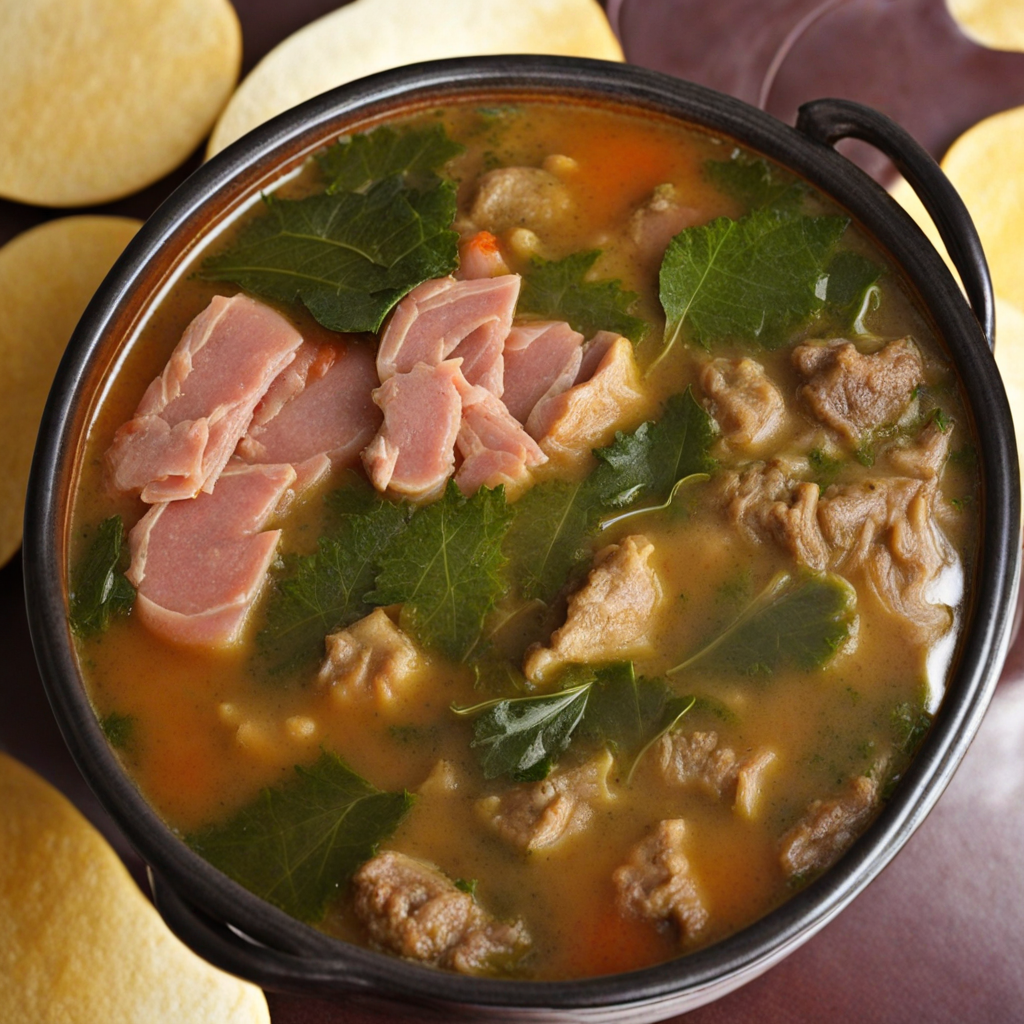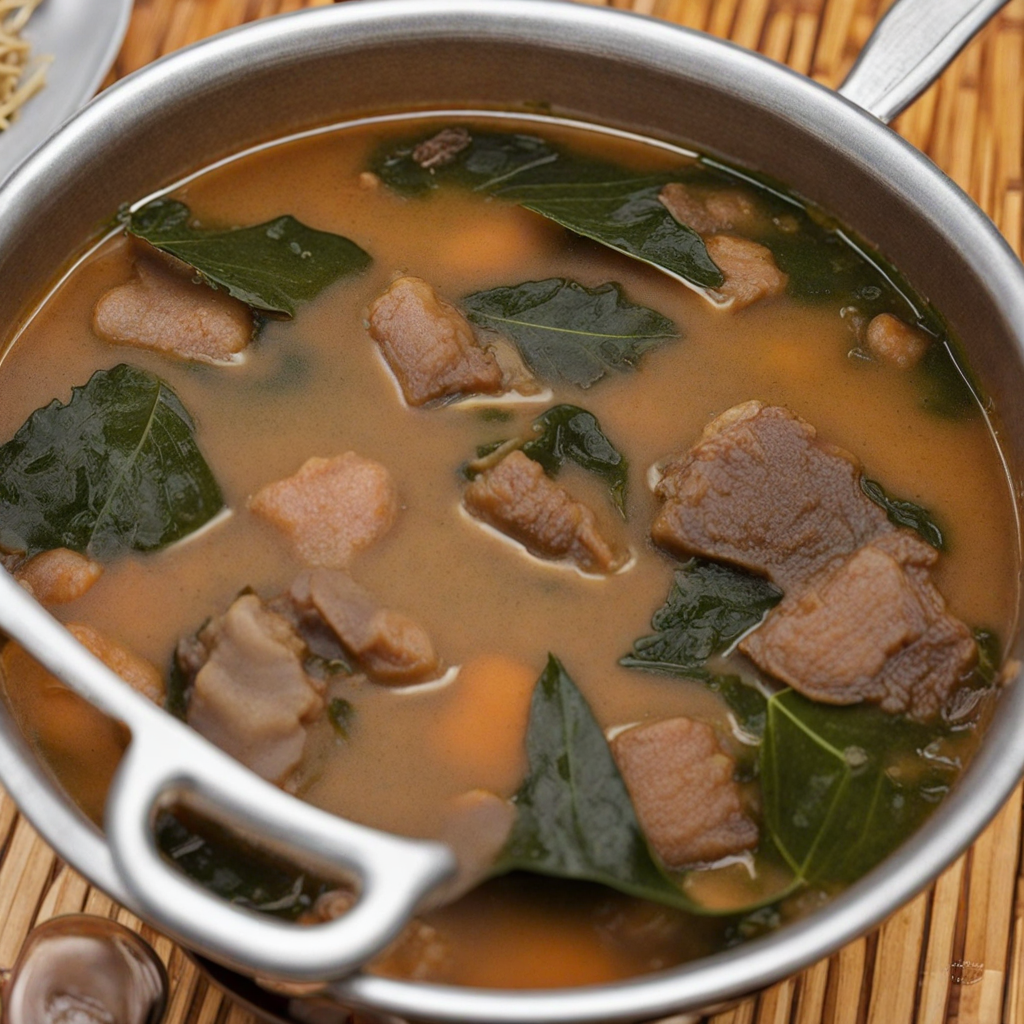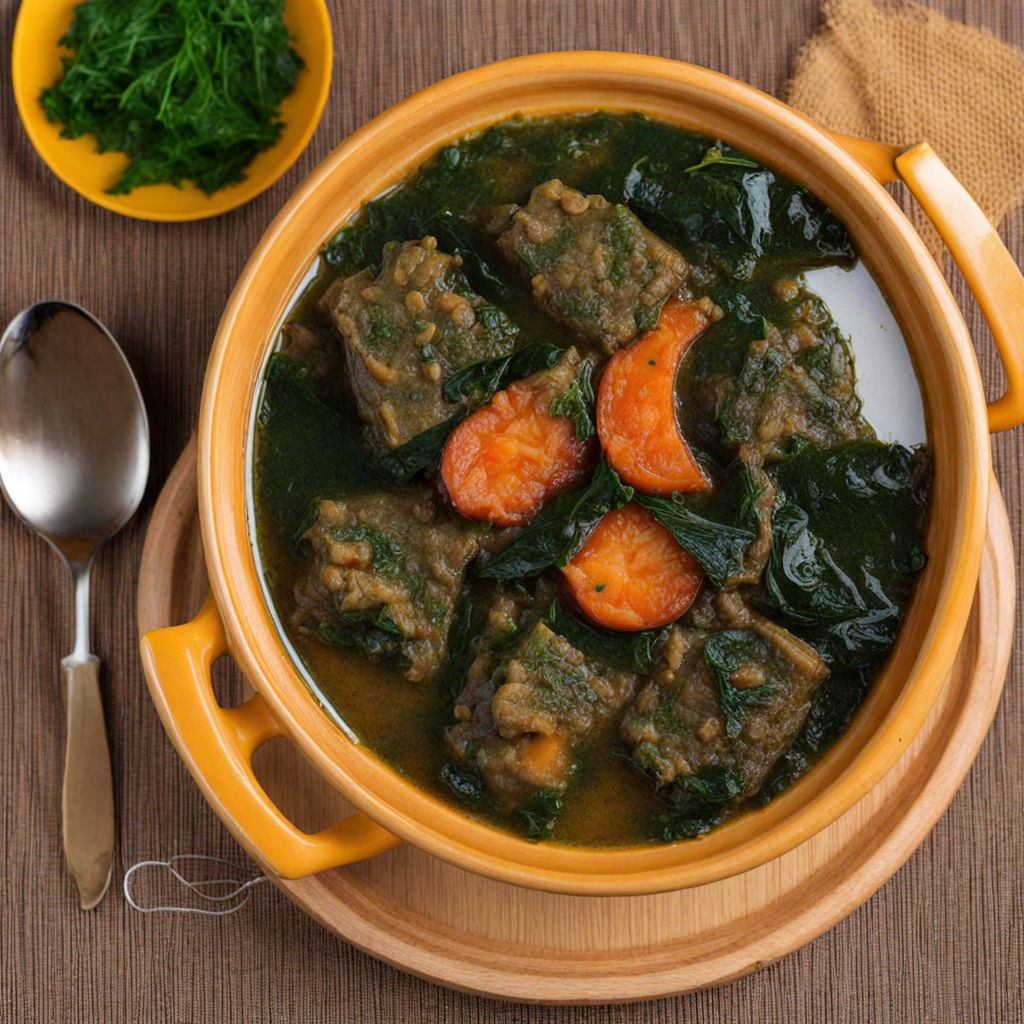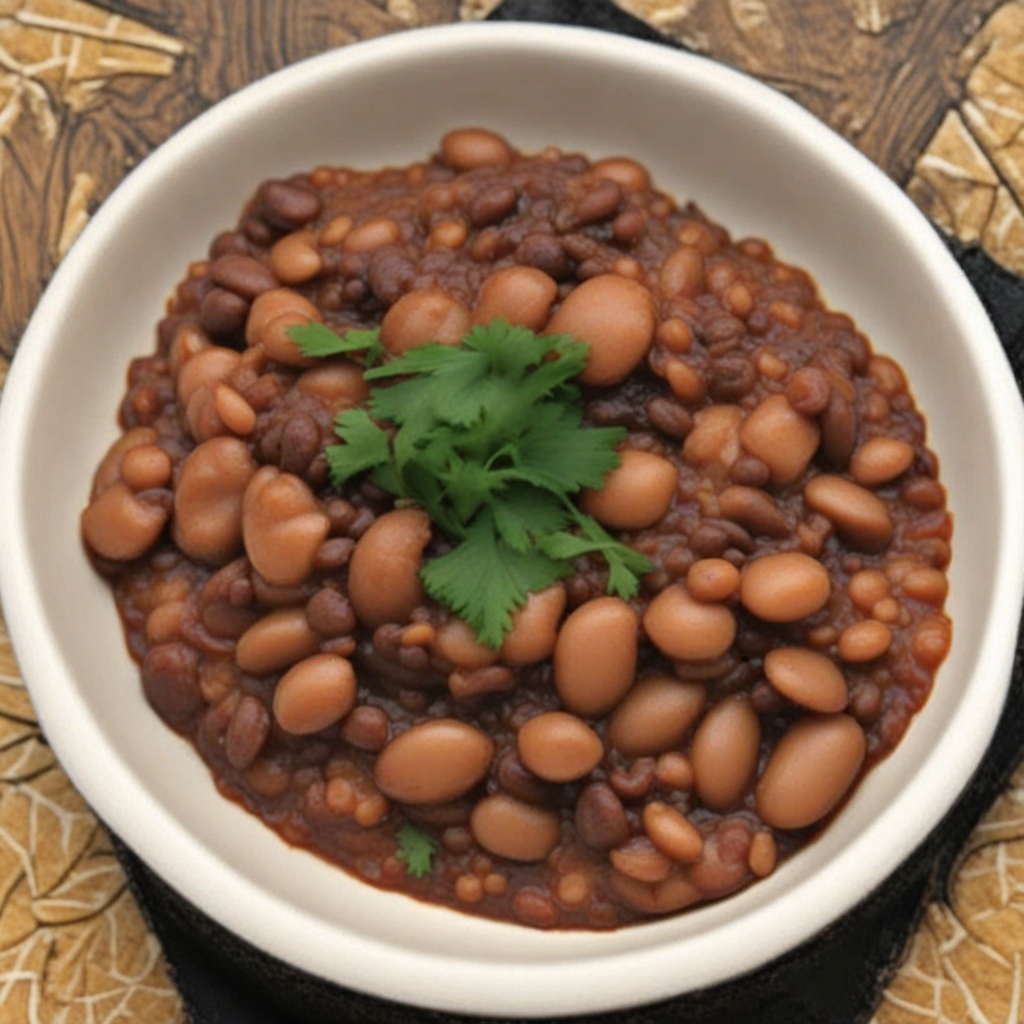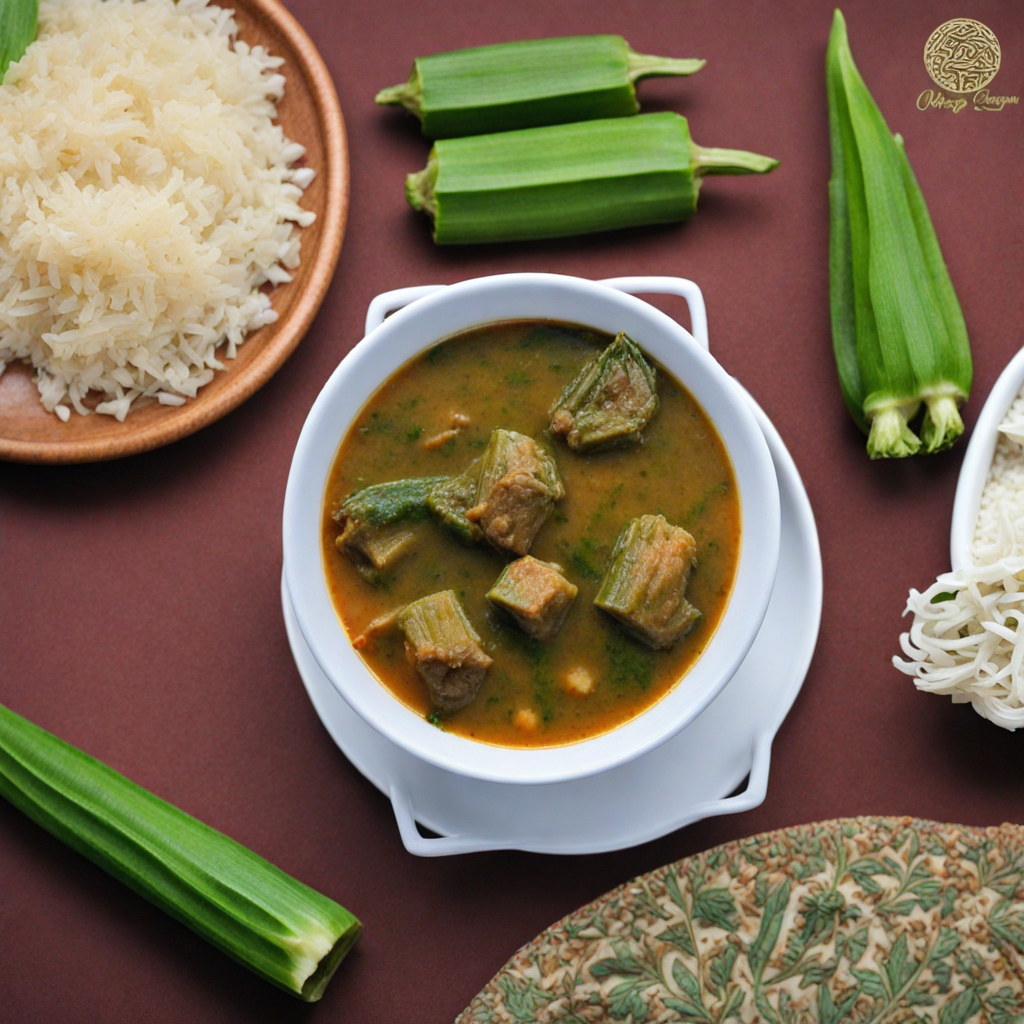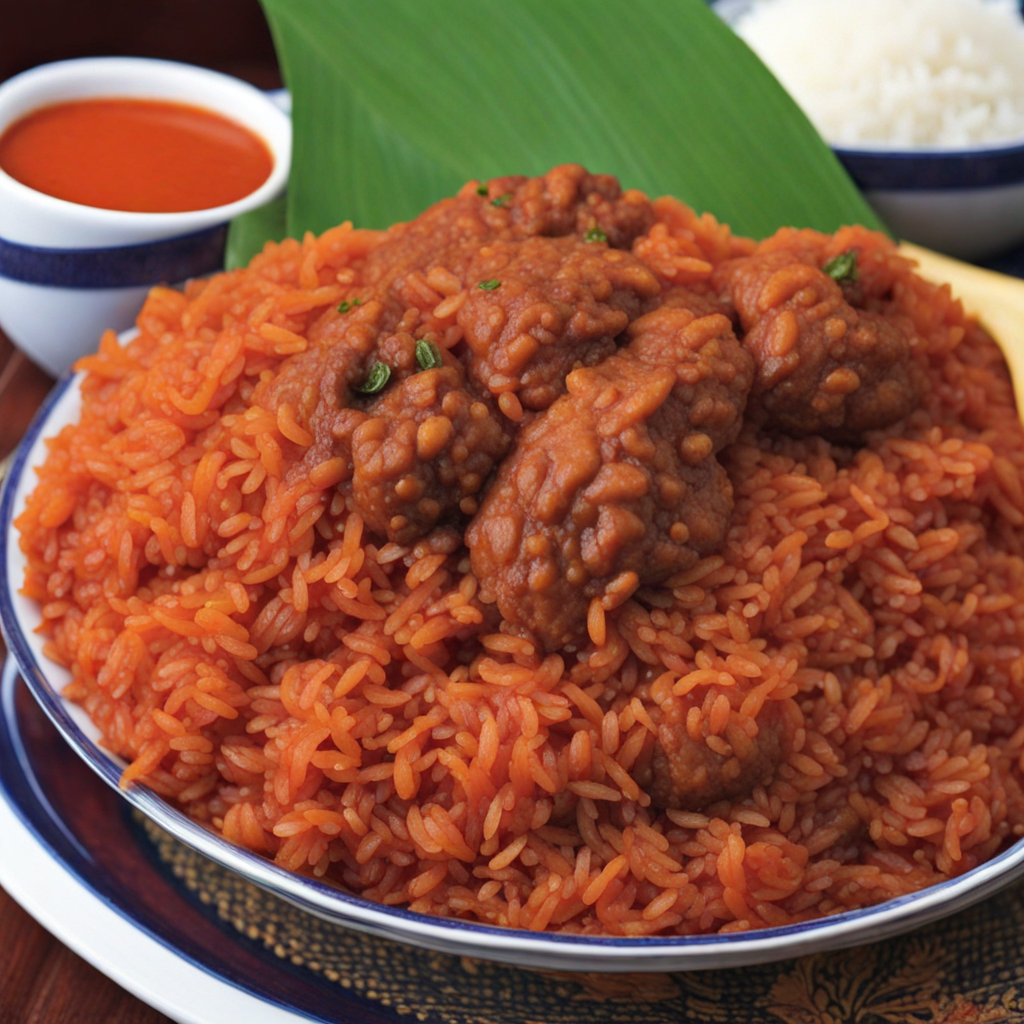Oha Soup
Oha Soup, a beloved dish from Nigeria, is a rich and flavorful traditional soup that showcases the vibrant culinary culture of the Igbo people. This hearty dish is primarily made using the leaves of the Oha tree, which are known for their distinct, slightly bitter flavor that beautifully complements the other ingredients. The soup is often thickened with cocoyam (also known as taro), which adds a smooth and creamy texture, creating a delightful contrast to the tender leaves. The base of Oha Soup is typically enriched with a blend of spices and seasonings, giving it a robust and aromatic profile that captivates the palate. In addition to the Oha leaves and cocoyam, the soup is usually prepared with various types of meat, such as goat, beef, or chicken, along with fish to enhance its flavor. The combination of these proteins not only contributes to the soup's richness but also provides a satisfying heartiness that makes it a perfect main dish. Palm oil is a key ingredient, lending a beautiful color and depth of flavor that elevates the dish to another level. The careful balance of ingredients and seasonings results in a soup that is both nourishing and indulgent. Oha Soup is often served with a side of fufu, pounded yam, or rice, making it a hearty meal that is enjoyed by many. Each spoonful offers a unique taste experience, with the earthy notes of the Oha leaves mingling with the savory meat and the luxurious texture of the cocoyam. The warmth of the spices adds a gentle heat that lingers on the tongue, inviting you to savor every bite. Discovering Oha Soup is not just about tasting a new dish, but also about experiencing the rich traditions and communal spirit of Nigerian dining.
How It Became This Dish
The Rich Heritage of Oha Soup: A Culinary Jewel of Nigeria Oha Soup, also known as Ofe Oha, is a traditional soup from the southeastern region of Nigeria, particularly among the Igbo people. This hearty and flavorful dish is cherished not only for its nourishing qualities but also for its cultural significance, which dates back centuries. The story of Oha Soup is intertwined with the communal values of the Igbo people, their agricultural practices, and the celebration of identity through food. #### Origins of Oha Soup The origins of Oha Soup can be traced to the indigenous practices of the Igbo people, who have historically inhabited southeastern Nigeria. The core ingredient of the soup is the leaves of the Oha tree (Pterocarpus mildbraedii), a native plant that thrives in the region's rich, fertile soil. The Oha leaves are known for their distinctive flavor and are typically harvested from the wild. Traditionally, the harvesting of these leaves was a communal activity, symbolizing the interconnectedness of families and communities, as well as the respect for nature's bounty. In addition to Oha leaves, the soup is often prepared with other indigenous ingredients such as cocoyam (taro), palm oil, and a variety of meats (including goat, chicken, or fish), as well as spices like ground crayfish, pepper, and sometimes locust beans. These ingredients reflect the agricultural diversity of the region and the local culinary practices that have evolved over time. #### Cultural Significance Oha Soup holds a place of honor in Igbo culture, often served during significant celebrations and communal gatherings. It is a dish that symbolizes hospitality, unity, and the essence of Igbo identity. Traditionally, it is served during festive occasions such as weddings, traditional ceremonies, and New Year celebrations. The preparation and sharing of Oha Soup are not only a culinary act but also a social ritual that reinforces community bonds. The soup is often accompanied by fufu, a starchy side made from cassava, yam, or plantains, which is used to scoop up the soup. This combination reflects the Igbo philosophy of sharing and togetherness. For many, the act of eating Oha Soup is reminiscent of family gatherings and the memories associated with them, making it a dish steeped in nostalgia and cultural pride. #### Development Over Time Over the years, Oha Soup has undergone various transformations while maintaining its core elements. With the introduction of new cooking techniques and ingredients influenced by globalization, some modern variations of Oha Soup have emerged. For example, the use of modern kitchen appliances has made the preparation of the soup more efficient, allowing families to enjoy this traditional dish in less time. Additionally, the incorporation of new proteins, such as shrimp or even tofu, reflects the evolving tastes of younger generations. Despite these modern adaptations, the essence of Oha Soup remains intact. Many families still adhere to traditional recipes passed down through generations, ensuring that the authentic flavors are preserved. The soup is often regarded as a marker of cultural identity, with each family adding their unique touch to the recipe, making it a personal heritage dish. The popularity of Oha Soup has also spread beyond the borders of Nigeria, with Igbo diaspora communities around the world celebrating their heritage through food. Restaurants specializing in Nigerian cuisine have started to feature Oha Soup prominently on their menus, introducing this delicious dish to a broader audience. This global appreciation has further solidified Oha Soup's status as a culinary gem, representing the rich cultural tapestry of Nigeria. #### Nutritional Value From a nutritional perspective, Oha Soup is a powerhouse of essential nutrients. The Oha leaves are rich in vitamins A, C, and K, as well as minerals like calcium and iron, making the soup not only delicious but also beneficial for health. The inclusion of various meats and palm oil adds protein and healthy fats, contributing to a well-rounded meal. In many Igbo households, the soup is seen as a source of strength, often prepared for individuals recovering from illness or those who need nourishment after childbirth. #### Conclusion Oha Soup is more than just a dish; it is a symbol of cultural heritage, community, and identity for the Igbo people of Nigeria. Its origins are deeply rooted in the agricultural practices of the region, with each ingredient telling a story of the land and its people. The soup's significance in communal gatherings and celebrations highlights the values of sharing and unity that are central to Igbo culture. As Oha Soup continues to evolve and adapt to modern culinary trends, its essence remains anchored in tradition. The dish serves as a reminder of the importance of food in shaping cultural identities and fostering connections among people. Whether enjoyed in a bustling restaurant, a family gathering, or a quiet home, Oha Soup remains a cherished culinary jewel that encapsulates the heart and soul of Nigeria's rich cultural landscape.
You may like
Discover local flavors from Nigeria


